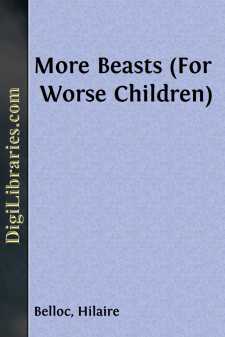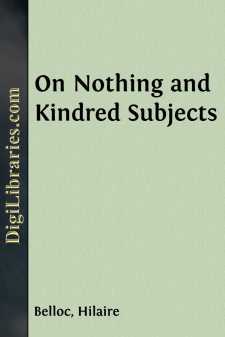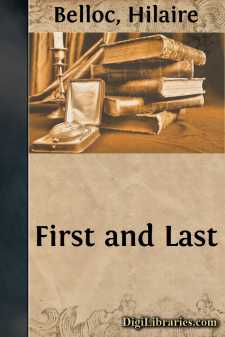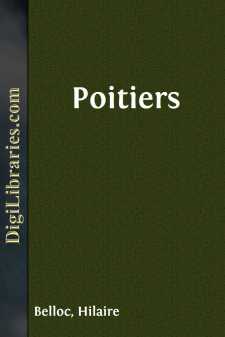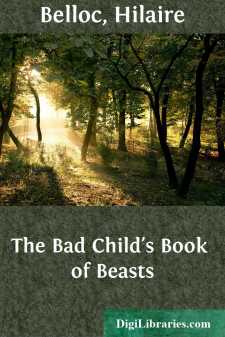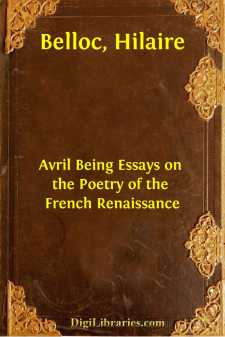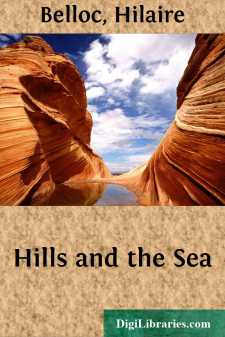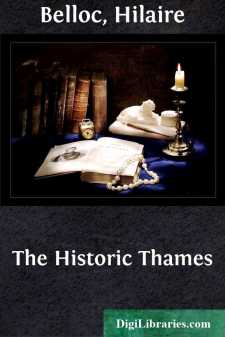Categories
- Antiques & Collectibles 13
- Architecture 36
- Art 48
- Bibles 22
- Biography & Autobiography 813
- Body, Mind & Spirit 141
- Business & Economics 28
- Children's Books 12
- Children's Fiction 9
- Computers 4
- Cooking 94
- Crafts & Hobbies 4
- Drama 346
- Education 46
- Family & Relationships 57
- Fiction 11826
- Games 19
- Gardening 17
- Health & Fitness 34
- History 1377
- House & Home 1
- Humor 147
- Juvenile Fiction 1873
- Juvenile Nonfiction 202
- Language Arts & Disciplines 88
- Law 16
- Literary Collections 686
- Literary Criticism 179
- Mathematics 13
- Medical 41
- Music 40
- Nature 179
- Non-Classifiable 1768
- Performing Arts 7
- Periodicals 1453
- Philosophy 64
- Photography 2
- Poetry 896
- Political Science 203
- Psychology 42
- Reference 154
- Religion 513
- Science 126
- Self-Help 83
- Social Science 81
- Sports & Recreation 34
- Study Aids 3
- Technology & Engineering 59
- Transportation 23
- Travel 463
- True Crime 29
More Beasts (For Worse Children)
by: Hilaire Belloc
Publisher:
DigiLibraries.com
ISBN:
N/A
Language:
English
Published:
1 year ago
Downloads:
16
Categories:
*You are licensed to use downloaded books strictly for personal use. Duplication of the material is prohibited unless you have received explicit permission from the author or publisher. You may not plagiarize, redistribute, translate, host on other websites, or sell the downloaded content.
Description:
Excerpt
INTRODUCTION
The parents of the learned child(His father and his mother)
Were utterly aghast to note
The facts he would at random quote
On creatures curious, rare and wild;
And wondering, asked each other:
"An idle little child like this,
How is it that he knows
What years of close analysis
Are powerless to disclose?
Our brains are trained, our books are big,
And yet we always fail
To answer why the Guinea-pig
Is born without a tail.
Or why the Wanderooshould rant
In wild, unmeaning rhymes,
Whereas the Indian Elephant
Will only readThe Times.
Perhaps he found a way to slip
Unnoticed to the Zoo,
And gave the Pachyderm a tip,
Or pumped the Wanderoo.
Or even by an artful plan
Deceived our watchful eyes,
And interviewed the Pelican,
Who is extremely wise."
"Oh! no," said he, in humble tone,
With shy but conscious look,
"Such facts I never could have known
But for this little book."
FOOTNOTE:
Sometimes called the "Lion-tailed or tufted Baboon of Ceylon."
A Python I should not advise,—It needs a doctor for its eyes,
And has the measles yearly.
However, if you feel inclined
To get one (to improve your mind,
And not from fashion merely),
Allow no music near its cage;
And when it flies into a rage
Chastise it, most severely.
I had an aunt in Yucatan
Who bought a Python from a man
And kept it for a pet.
She died, because she never knew
These simple little rules and few;—
The Snake is living yet.
The Welsh Mutton
The Cambrian Welsh or Mountain SheepIs of the Ovine race,
His conversation is not deep,
But then—observe his face!
What! would you slap the Porcupine?
Unhappy child—desist!
Alas! that any friend of mine
Should turn Tupto-philist.
To strike the meanest and the least
Of creatures is a sin,
How much more bad to beat a beast
With prickles on its skin.
From =I strike; =I love; one that loves to strike. The word is not found in classical Greek, nor does it occur among the writers of the Renaissance—nor anywhere else.
The Scorpion
The Scorpion is as black as soot,He dearly loves to bite;
He is a most unpleasant brute
To find in bed, at night.
Whatever our faults, we can always engage
That no fancy or fable shall sully our page,
So take note of what follows, I beg.
This creature so grand and august in its age,
In its youth is hatched out of an egg.
And oft in some far Coptic town
The Missionary sits him down
To breakfast by the Nile:
The heart beneath his priestly gown
Is innocent of guile;
When suddenly the rigid frown
Of Panic is observed to drown
His customary smile.
Why does he start and leap amain,
And scour the sandy Libyan plain
Like one that wants to catch a train,
Or wrestles with internal pain?
Because he finds his egg contain—
Green, hungry, horrible and plain—
An Infant Crocodile.
The Vulture
The Vulture eats between his meals,And that's the reason why
He very, very rarely feels
As well as you and I....


